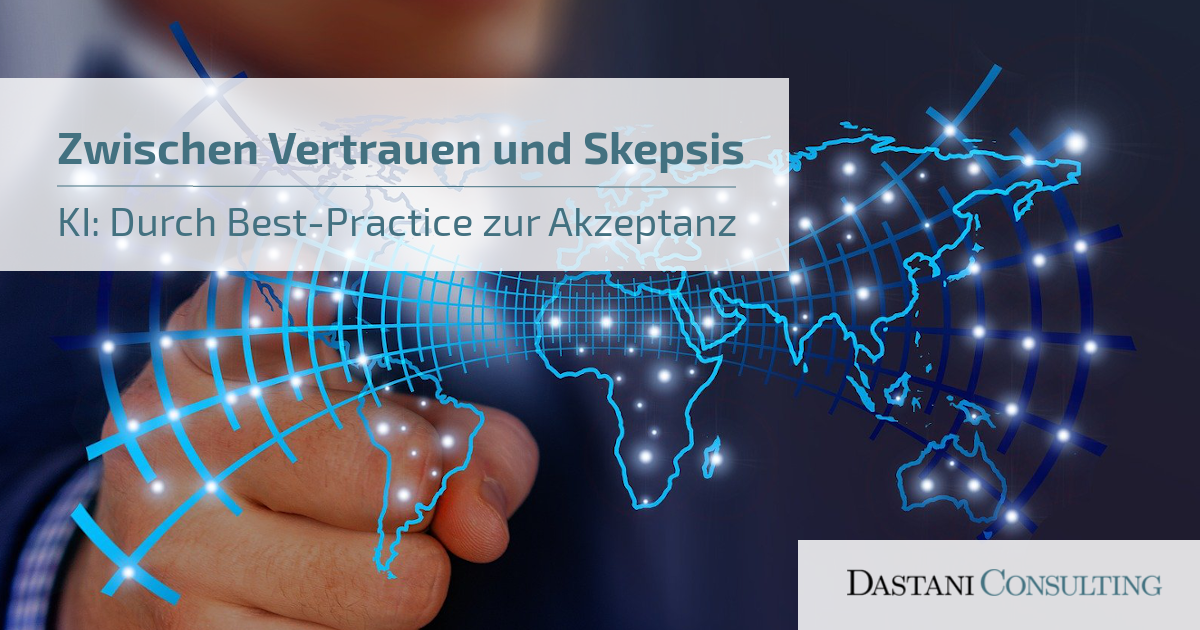
Much has been written about artificial intelligence (AI) in the past. Depending on the perspective, chances and possibilities, but also risks and challenges have been considered. Many companies place their trust in AI – others, however, have great fear of contact.
In the past decade there has been much speculation about AI systems. But now it is time to plan the implementation and deployment. Data collection, transfer and processing are currently at the top of the agenda in the age of AI.
The intelligent needs manager
The AI serves as a needs manager in companies to derive important market trends and effective business potential from the amount of more or less structured data. If possible, these trends should be identified first in order to provide potential customers with a suitable offer first.
Predictive Customer Relationship
Furthermore, AI changes Customer Relationship Management (CRM) to a so-called Predictive Customer Relationship (PCR), which predicts the future behaviour of a customer. For this purpose, not only multivariate analyses are used, but also intelligent algorithms that precisely calculate the expected values of purchase probabilities. The best possible case would be that the potential customer is supplied with suitable products or offered services that he did not order at all, but which he would not return or reject because of the correct prognosis of the customer’s needs.
Great distrust in German companies
According to Statista, in the past year 2019 a total of about 220.6 billion € turnover was influenced by AI applications. The majority of this was generated in the automotive and consumer goods production, closely followed by mechanical engineering and electronics.
According to the IW study in October 2019, 10% of the 700 German industrial companies surveyed are already using AI – often the applications are already mature and in practical use. However, about 70% of German companies still distrust AI applications and do not want to use them in the future. 40% are even of the opinion that AI is a major threat to their business model. Companies that are already experienced with AI technology prove to be more open-minded than others.
Best-Practice for AI
The IW study makes it clear that Best-Practice cases (so-called fields of application) must be brought to the attention of companies in order to increase acceptance and to show in which areas the application of AI can take place. When companies see the potential that AI has for their own business model, fear of contact can be gradually reduced.
AI often in everyday life
However, the widespread use of AI applications such as translation or speech recognition tools should not make it difficult for people to accept and use AI applications in a business context. Many people are often confronted with chat bots, which are used by companies as virtual employees in first-level support to catch the first customer contact.
Do not wait for the super intelligence!
There are many Best-Practice from different industries for AI (in manufacturing, (financial) services, retail or smart home) – a lot could be said about them in this article – but most importantly, AI can substantially improve sales by automating the identification, forecasting and profiling of leads. In the service portfolio, AI data analysis can help in the search for digital twins (AI-based twins), customer value prediction, credit assessment or even AB testing (such as eye tracking on landing pages).
AI is able to send the right product to the right target group via the right channel at the right time and supports sales managers in making better business decisions. In marketing, the use of predictive analytics, recommendation algorithms, dynamic pricing, website analysis, social listening, content creation, etc. can help to achieve better business results.
Conclusion: Maximum support
Companies need to look at Best-Practice cases and trust AI systems to get rid of fear of contact. AI must be used in such a way that it strengthens us humans in our actions and actions in order to support human intelligence to the maximum.
If you have any further questions, please visit our social media channels (Xing, Linkedin, Instagram) call us at +49 (0)641 984 46 – 0.
